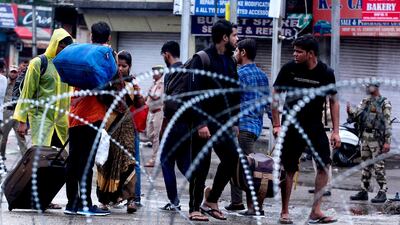In 1947, when India became independent, the state of Jammu & Kashmir presented a dilemma. By demographics, it held a Muslim-majority population, but its king, Hari Singh, was a Hindu. He could have yielded his subjects to Pakistan, the Islamic nation that had just been born across the border. Instead, though, he chose to accede to India, a secular nation with a Hindu majority.
But as a condition of that accession, the state’s interim government negotiated for Article 370: a constitutional measure that would grant a higher degree of autonomy to Jammu & Kashmir than to other states. Laws made in New Delhi for the rest of India would apply in Jammu & Kashmir only if the Indian president first issued an order to that effect and the state’s government then concurred.
Only in aspects of foreign relations, defence and communications would Jammu & Kashmir have to fall in line with Indian policy.
In 1954, a presidential order gave Jammu & Kashmir a further power: to determine what rights and privileges would be enjoyed by permanent residents, a category defined by the state’s legislature itself.
As a result, Indians who are not deemed to be permanent residents of Jammu & Kashmir cannot buy land there. They cannot apply for jobs in the state’s government, or avail of college scholarships offered in the region.
Since Jammu & Kashmir still has a Muslim majority, the effect of Article 370 is to keep it so by preventing Hindus from settling permanently in the state. The demographics grew even more skewed towards Muslims when, in 1989 and 1990, close to half a million Hindus were forced out of Kashmir under threat of attack by Islamic militant groups that claimed to seek freedom for Kashmir.

